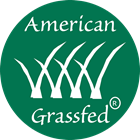In recent discussions about agricultural policy, the EATS Act has surfaced as a controversial topic. Critics like Vinnie Trometter argue that this legislation could precipitate a “race to the bottom” regarding food quality and variety. As advocates for sustainable, grass-fed farming, it’s crucial to dissect what the EATS Act entails and how it might reshape the landscape of American agriculture.
What Is The EATS Act?
The EATS (Ensuring American Territorial Sovereignty) Act is a legislative proposal to streamline food production regulations across state lines. On paper, it aims to reduce bureaucratic hurdles for food producers by creating uniform standards nationwide.
However, critics argue that these ‘uniform standards’ could favor large-scale industrial farms, potentially overshadowing the stricter, quality-focused standards set by states that prioritize environmentally friendly and humane practices.
Implications for Food Quality
Vinnie Trometter’s concerns are not unfounded. If the EATS Act passes, it could lower the bar for what is acceptable regarding production methods, animal welfare, and environmental impact.
For consumers, this means that the market could be flooded with lower-quality products, under the guise of increased availability and reduced costs. Such changes could undermine the efforts of producers who have committed to higher standards, like those certified by the American Grassfed Association.

The Risk to Food Diversity
Another significant concern is the risk to food diversity. Today’s market benefits from a rich variety of products, including those from small-scale, niche producers who might find it impossible to compete under a homogenized regulatory framework.
This diversity is not just about flavors and culinary experiences; it’s about preserving a vast genetic pool that contributes to food security and resilience in the face of pests, diseases, and climate change.
As the debate around the EATS Act continues, stakeholders in the grass-fed and organic sectors need to voice their concerns. Engaging with policymakers, participating in public forums, and educating consumers about the stakes can make a difference. The quality of our food and the diversity of our plates should not be compromised for expediency.
Frequently Asked Questions
What does the EATS Act propose?
The EATS Act seeks to standardize food production regulations across all states to simplify selling food products across state lines. This could affect state-specific standards on food safety, labeling, and animal welfare.
How could the EATS Act affect small farmers?
Small farmers and organic producers who rely on higher standards to differentiate their products might be negatively impacted. The Act could force them to conform to less rigorous national standards, potentially reducing the uniqueness and quality of their offerings.
Why is there opposition to the EATS Act?
Opposition arises because the simplification might primarily benefit large, industrial operations by allowing them to adhere to lower standards, which could undermine smaller, quality-focused producers.
Can consumers influence the outcome of the EATS Act?
Yes, consumers can influence the legislative process by voicing their preferences for high-quality and sustainably produced foods, contacting representatives, and supporting advocacy groups.
What are the environmental impacts of the EATS Act?
Lowering standards to a common denominator might encourage practices detrimental to soil health, water quality, and biodiversity, discouraging environmentally sustainable agriculture.

Conclusion
The EATS Act represents a critical juncture for food policy in the United States. While simplifying food trade regulations is laudable, ensuring that such simplifications do not come at the expense of quality, sustainability, or the livelihoods of those who have invested in raising standards across the food production industry is vital.
Stakeholders must remain vigilant and proactive to ensure that new legislation supports a sustainable, diverse, high-quality food system.
Want to ensure the continued availability of high-quality, diverse food options? Join us in advocating for policies that support sustainable practices and local farms.
